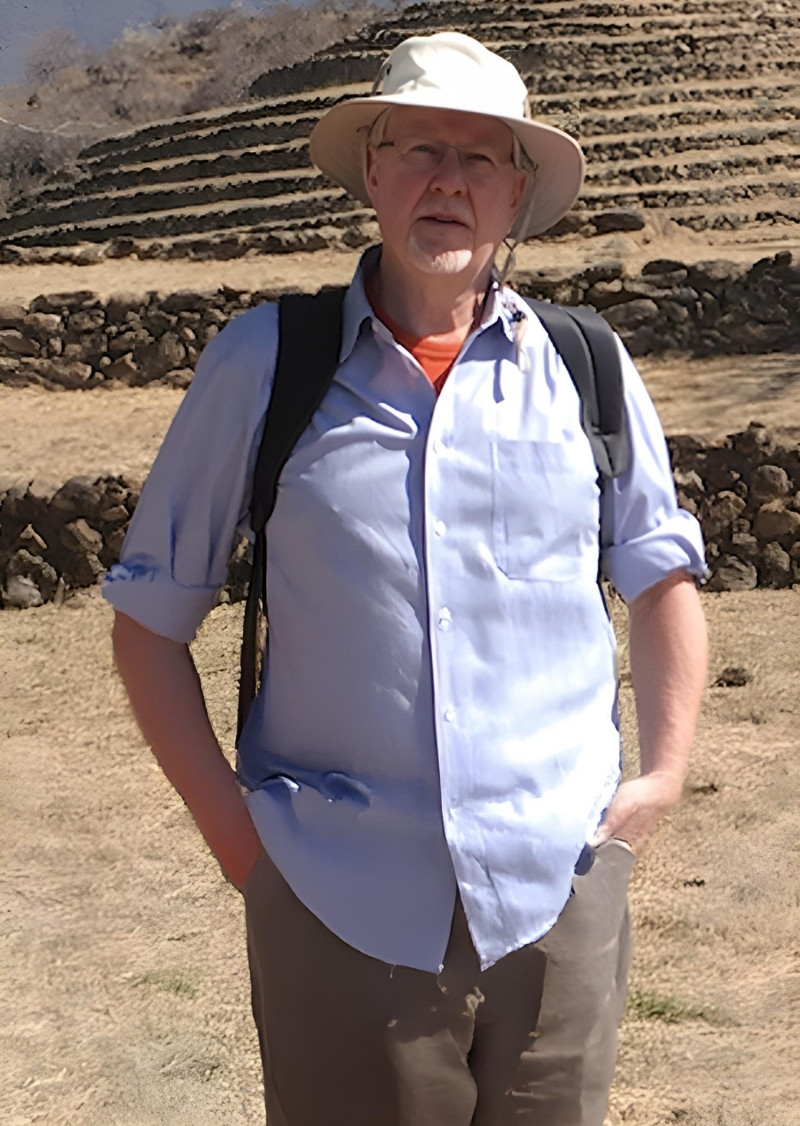
Thomas William Killion
Associate Professor, Archaeology
Former Department Chair
313-577-2935
313-577-5958 (fax)
- Museum: 1204 Old Main
- Anthropology office: 3029 FAB
Department
Thomas William Killion
Research interest(s)/area of expertise
-
Expertise: archaeology; ethnoarchaeology; urban archaeology; landscape research; museum anthropology; Native American repatriation
-
Research areas: Mesoamerica; North America; Mediterranean Mountains Spain; Southeast Michigan/Detroit
-
Research topics: agriculture; land-use, landscapes, and settlement pattern change; local Detroit heritage and preservation; community collaboration
Research
I am an anthropological archaeologist with a research focus on culture, history, and ecology. Much of my work has centered on the evolution of agriculture and settlement systems in tropical and temperate environments. I study the cultural landscape to document and interpret the impact of people on environments and how environments, in turn, have shaped culture over the course of human history.
My work and publications in Mesoamerican archaeology look at the shift from societies based on hunting, gathering, and horticulture to intensive tropical agriculture and the development of urban settlement systems. Research along Mexico’s Gulf Coast and elsewhere in Central America examines the impacts of agricultural intensification and warfare on the rise of urban settlement patterns in lowland environments. I am interested in this topic as it relates to the causes and consequences of past cultural change and how this knowledge applies to agricultural sustainability, contemporary community development, and heritage preservation today.
Fieldwork and publications on historical and archaeological sites in metropolitan Detroit over the last two decades examine industrialization and urbanization in the 20th century. I’ve also recently collaborated with other archaeologists and Wayne State students on the deep history of Native American people throughout southeast Michigan and the Great Lakes region. This work involves colleagues from the City of Detroit, federally- recognized Tribes in Michigan and with the National Park Service on archaeology, ancient site conservation and future planning for the site of Historic Fort Wayne in southeast Detroit.
Since 2017 I’ve co-directed an ethnoarchaeological landscape survey in Alpuente, Valencia, Spain. The project combines ethnography, archaeology, history, and archival research on 20th century rural abandonment and, more broadly, looks to document patterns of agricultural and settlement change in the area since early medieval (Islamic period) times (AD 1000 to present).
I currently conduct research on these and other issues in archaeological and contemporary community contexts. I work with students (B.A., M.A. and Ph.D.) whose interests overlap with my expertise in archaeology, ethnoarchaeology and landscape studies (see above). Prospective graduate students are encouraged to contact the department to request more information about our graduate programs or email me (thomas.killion@wayne.edu) with inquiries.
Education
- Ph.D. in Anthropology, University of New Mexico, 1987
- M.A. in Anthropology, University of Connecticut, 1978
- B.A. in Archaeology, University of Connecticut, 1976
- Repatriation Office Manager, Department of Anthropology, National Museum of Natural History, Smithsonian Institution 1990-2000
- Postdoctoral Fellow, Mesoamerican Archaeology, Dumbarton Oaks Pre-Columbian Library, 2007-2008
- Served as chair of the Department of Anthropology 2001-2006 and 2012-2015
Awards and grants
- Grants: Wenner-Gren Foundation for Anthropological Research (Petexbatun Project, w/Vanderbilt University) 1991/1992; National Science Foundation w/ Javier Urcid (Brandeis University) 1998; Smithsonian Institution 1998, Wayne State University, research in Valencia, Spain (2017,2018, 2019,2022)
- College of Liberal Arts and Sciences Teaching Award, 2010
- Michigan Governor’s Award for archaeological work with community partners in Detroit, 2009
Selected publications
- 2019 Mounds, Towns and their Surrounds: Archaeological, Historical and Geophysical Approaches to the Springwells Mound Group, Historic Fort Wayne, Detroit (with Thomas Urban and James Conway) Journal of Field Archaeology, 44 (6): 383-400
- 2017 Review of Agricultural Beginnings in the American Southwest. by Barbara J. Roth. Lanham: Rowman and Littlefield (2016), American Anthropologist Volume 119 (4): 775-776
- 2014 (published in 2020) Springwells, Historic Fort Wayne and The War of 1812 in Southeast Michigan: Exploring Detroit’s Past in War and Peace (with Kat Slocum and Terri Renaud) Michigan Archaeologist, Volume 59: 73-99
- 2013 “Non Agricultural Cultivation and Social Complexity: The Olmec, Their Ancestors, and Mexico’s Southern Gulf Coast Lowlands” Current Anthropology Volume 54, Number 5 pp. 1-39
- 2008 “Social, political and economic factors in Classic Period Settlement ACE 750-900, Veracruz, Mexico,” with Javier Urcid In The Dumbarton Oaks Conference on the Archaeology of Veracruz, edited by Christopher Pool and Philip J. Arnold, Dumbarton Oaks, Washington DC. pp. 259-291
- 2008 Opening Archeology: Repatriation’s Impact on Method and Theory, edited by Thomas W. Killion, School of American Research Press, Santa Fe, New Mexico. 1992 Gardens of Prehistory: Analytical Approaches to Settlement Agriculture in Greater Mesoamerica, edited by T. W. Killion, University of Alabama Press. pp. 334